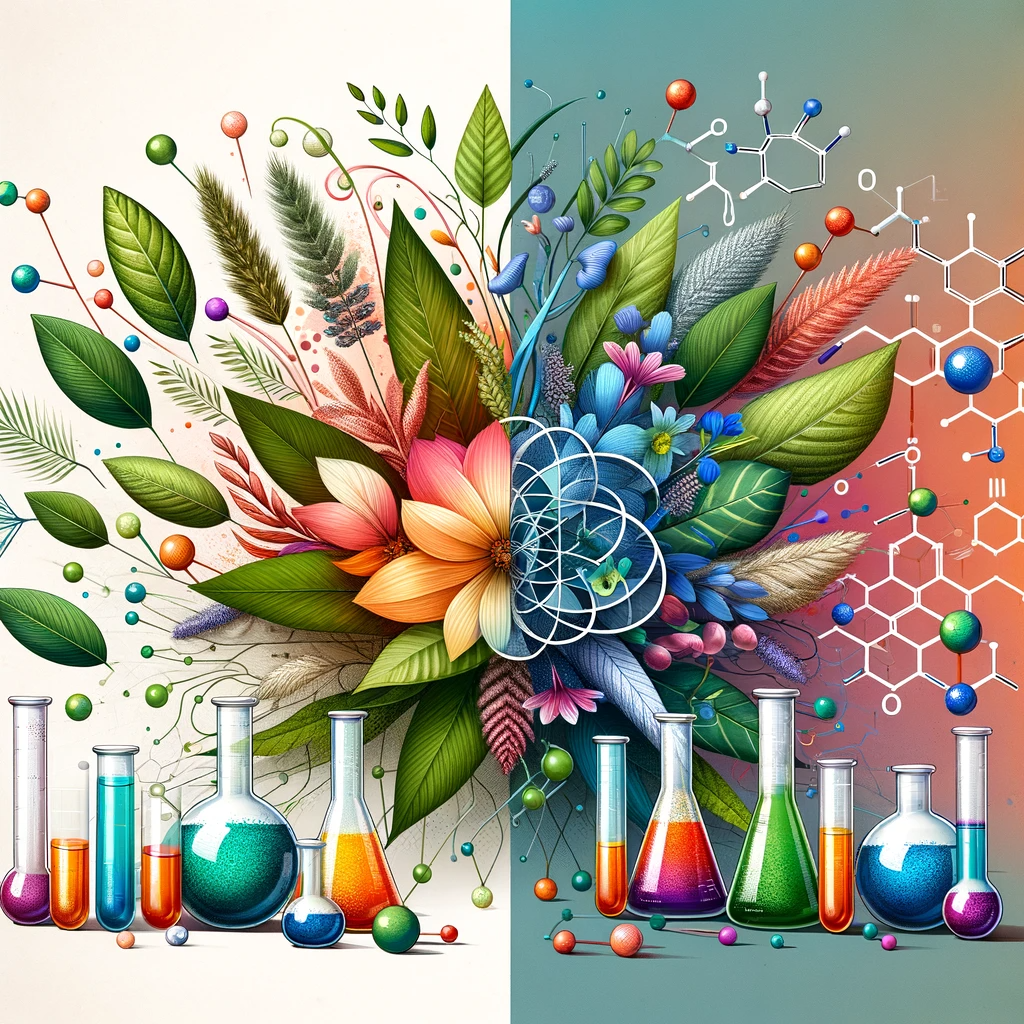The beauty and skincare industry has been buzzing with discussions surrounding the use of natural and synthetic ingredients in their products. As consumers become more conscious of the products they apply to their skin, the debate between natural and synthetic ingredients has intensified. In this article, we’ll examine the pros and cons of both natural and synthetic ingredients to help you make an informed choice about what you put on your skin.
Natural Ingredients:
Pros of Natural Ingredients:
- Chemical-Free: One of the primary advantages of natural ingredients is that they are free from harsh chemicals, making them suitable for those with sensitive skin.
- Biocompatibility: Natural ingredients often have a higher biocompatibility with the skin, meaning they are less likely to cause irritation or allergic reactions.
- Environmental Impact: The sourcing and production of natural ingredients are generally more sustainable, reducing the environmental footprint of beauty products.
- Nutrient-Rich: Many natural ingredients are packed with vitamins, minerals, and antioxidants that can nourish and rejuvenate the skin.
Cons of Natural Ingredients:
- Limited Shelf Life: Natural ingredients may have a shorter shelf life compared to their synthetic counterparts, leading to quicker product expiration.
- Inconsistent Potency: The potency of natural ingredients can vary depending on factors like harvesting methods and environmental conditions.
Synthetic Ingredients:
Pros of Synthetic Ingredients:
- Stability: Synthetic ingredients are often more stable, extending the shelf life of products and reducing the need for preservatives.
- Precise Formulation: Manufacturers can precisely control the formulation of synthetic ingredients, ensuring consistent product performance.
- Cost-Effective: Synthetic ingredients can be less expensive to produce, making products more affordable for consumers.
- Efficacy: Some synthetic ingredients can be engineered to deliver specific skincare benefits, such as anti-ageing or sun protection.
Cons of Synthetic Ingredients:
- Chemical Additives: Many synthetic ingredients may contain chemical additives or preservatives, which can be harsh on sensitive skin.
- Environmental Concerns: The production of synthetic ingredients can have a greater environmental impact due to the use of petrochemicals and energy-intensive processes.
- Potential Health Risks: Some synthetic ingredients have raised concerns about long-term health effects, although research in this area is ongoing.
In conclusion, the choice between natural and synthetic ingredients in beauty and skincare products ultimately comes down to personal preferences and skin type. It’s essential to consider the pros and cons of each and make an informed decision based on your individual needs and values. While natural ingredients may appeal to those seeking a more holistic and environmentally friendly approach, synthetic ingredients offer stability and precision in formulations. Whichever path you choose, always remember to read product labels, do your research, and consult with a dermatologist or skincare professional if you have specific concerns or skin conditions.
